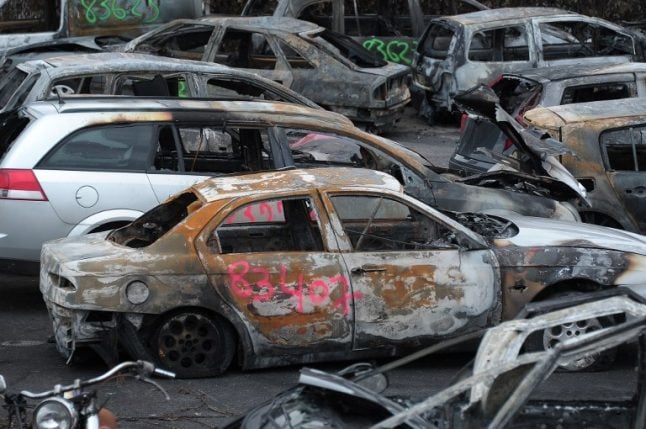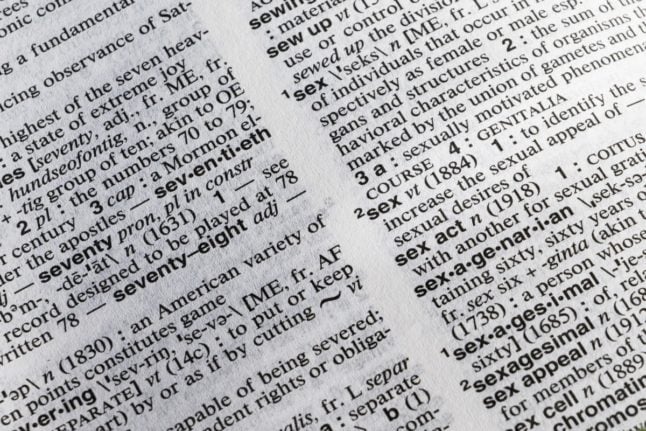Every New Year’s Eve nervous car owners across France cross their fingers in the hope they can start the year ahead with their vehicle intact. That’s because of a longstanding French ‘tradition’ that sees youths in certain areas torching scores of cars.
How many?
The car-burning seems to have begun in Strasbourg in the late 1990s and reached a peak in 2013, when 1,193 cars were set alight across the country on New Year’s Eve.
After that the numbers saw a slight but steady fall, although alterations in the data reporting makes it harder to compare 2019 – while pandemic restrictions were in place in 2020 and 2021.
The main reason for the fall, according to France’s national crime agency ONDRP, is that the media take less interest now in the mass burning of cars, which means there may be less of a thrill for the arsonists.
Authorities have previously refrained from reporting on the number of torched cars on New Year’s Eve after it was discovered that a district-by-district breakdown was fuelling destructive competition between rival gangs.
Added to that is that extra police are regularly deployed in sensitive areas on specific nights of the year to try to prevent the blazes.
Where?
This is not something that affects the whole of France, it is markedly more common in certain areas.
It reportedly began in the east of the country, in and around the poorer neighbourhoods of Strasbourg.
The more recent ONDRP data shows that the départements most affected by the phenomenon were Haute-Corse in Corsica, Isère to the south east which includes Grenoble, and Oise in the north east of the country.
Rural areas of France are much less affected than urban areas.
The car owners most affected are generally in the more hard-up neighbourhoods.
So why do the French burn cars anyway?
This isn’t only something that happens on New Year’s Eve – cars are often set ablaze whenever there is an outbreak of social disorder, as seen in the 2005 riots when hundreds of vehicles were torched, and again during rioting in the summer of 2023.
The ONDRP’s Christophe Schulz told Le Parisien newspaper: “Vehicle fires are often associated with a context of riots and urban violence. It can also be a ‘game’ to break the monotony, or it could be motivated by vengeance after a violent arrest. Or it could just be to get rid of a car used in a crime or as an insurance scam.”
In previous years, cars have also been torched on Bastille Day, as well as during periods of social unrest such as the gilets jaunes protests of 2018/19.



 Please whitelist us to continue reading.
Please whitelist us to continue reading.
Member comments